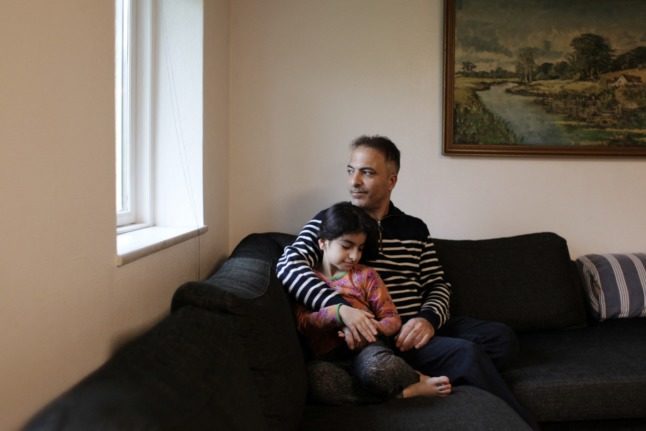According to an AFP reporter at the scene, a shell exploded amid a group of journalists covering demonstrations in the city on a visit organised by the authorities. Several more people were reported wounded.
One of those hurt was a Belgian journalist who was hit in the eye.
Jacquier’s death was confirmed by his employer, the France 2 public television channel. The 43-year-old joined public television in 1991 and was an award-winning veteran who had covered conflicts in Iraq, Afghanistan, Kosovo and Israel.
The Syrian information ministry said it was aware of an incident involving foreign journalists, but could not provide any further details.
“We vigorously condemn this odious act,” French Foreign Minister Alain Juppe said in a statement, demanding the circumstances of the death be clarified and reminding Syria of its duty to protect foreign journalists.
He said the French ambassador in Damascus would travel “immediately” to the scene in Homs and asked the Syrian authorities to assist the other people who were accompanying the reporter when he died.
“We demand that an investigation be conducted in order to shed light on the circumstances of this incident,” Juppe added.
Global press watchdog Reporters Without Borders also demanded an inquiry, and called on the Arab League observers deployed to monitor the Syrian conflict to play a role.
“Gilles Jacquier is the first foreign journalist killed in Syria since the start of the uprising, March 15, 2011. All our thoughts are with his family and colleagues,” the group said.
Bertrand Coq, a journalist with whom Jacquier in 2003 jointly won France’s top journalism prize, the Prix Albert Londres, paid tribute to his late colleague.
“Gilles was an excellent war reporter,” he said, noting that Jacquier took a bullet in the shoulder while on an assignment in the West Bank in 2003.
The executive editor of Jacquier’s television station, Thierry Thuillier, said he was “one of the best reporters in France 2, an exceptional man.”
“We are all in shock. We are going to miss him a lot,” he said.
The station said he had been authorised by the Syrian authorities to work in Homs and had a valid visa that allowed him to report from the country.
“They were not working undercover,” it said in a statement.
Jens Franssen, a reporter with Belgium’s VRT television, said around 15 journalists on the visit were in Homs, when “three or four grenades exploded near us.”
Militants in Homs blamed the authorities for the incident.


 Please whitelist us to continue reading.
Please whitelist us to continue reading.